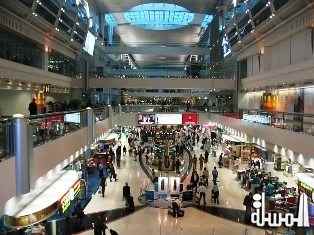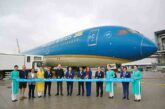
Dubai Launches Passenger Services At New Airport
Almasalla Travel News – Dubai officially launched passenger services at its new Al Maktoum airport on last Sunday after a delay of nearly four years, with three airlines agreeing to operate from the facility.
The airport, Dubai’s second, officially received its first commercial flight by budget carrier Wizz Air, which brought passengers from Budapest.
Since 2011, tourists have flocked to Dubai, a regional safe haven, at a time of political unrest elsewhere in the Middle East, which helped the emirate’s economy emerge from a crippling debt crisis.
Dubai is now reviving stalled infrastructure and housing projects in expectation of a tourism and economic boom.
"The opening of this facility signals the historic beginning of a long-term plan to build the largest airport in the world to accommodate tremendous passenger growth," Sheikh Ahmed bin Saeed al-Maktoum, the chairman of Dubai Airports said in a statement.
The plan, if successful, is to expand the new facility in phases to eventually accommodate up to 160 million passengers each year in the next decade.
Al Maktoum’s passenger terminal was initially scheduled to launch in 2009, but it was pushed back after Dubai’s debt crisis. Cargo operations started there in June 2010.
Apart from Wizz Air, Kuwait’s Jazeera Airways and Bahrain’s Gulf Air have also agreed to start operations at the new facility.
The airport can currently handle 7 million passengers a year, compared with the nearly 60 million that pass through the Dubai’s existing airport.
Dubai’s flag carrier Emirates and state budget carrier flydubai have not moved to the new airport, Paul Griffiths, chief executive of Dubai Airports, which operates both, told reporters after the opening ceremony.
"Emirates needs a hub that is capable of allowing it to grow its business," he said. "This airport right now can only handle 7 million passengers, but we have incremental plans to increase that capacity."
Dubai has also expanded its existing airport to include a new terminal dedicated strictly to Airbus A380 superjumbo, which makes a shift out of the facility impractical.
Backed by state-sponsored mega airports and aggressively growing airlines, Gulf cities such as Dubai, Abu Dhabi and Doha have gradually been taking over as global hubs from traditional hubs in Europe.
Qatar is building a USD$15 billion airport in Doha, which is expected to open early next year. Abu Dhabi is constructing a new USD$2.9 billion terminal, less than an hour’s drive from Dubai’s new facility.
"I think hubs will continue to develop in the region and replace hubs in Europe," Griffiths said. "I don’t see any problem in having more airport capacity in the region."
Source :Reuters







